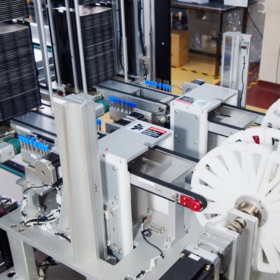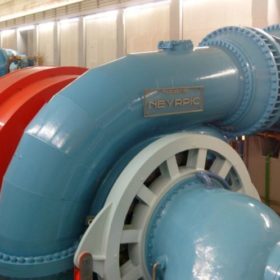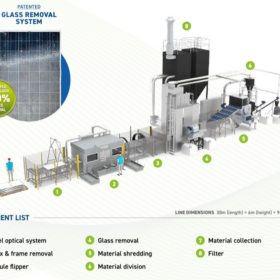SolarPower Europe and NSEFI have jointly published their ‘Engineering, Procurement & Construction: Best Practice Guidelines India edition 2.0’ report. This new publication includes updated recommendations to reflect India’s unique market and business conditions, and rapid solar growth.
The guidelines aim to increase transparency and establish common standards for everyone involved in building solar PV plants, from EPC contractors, to owners, investors, lenders, and technical experts.
Benjamin Clarke, Global Markets Manager at SolarPower Europe (he/him) said; “India is the world’s third-largest solar market, with over 100 GW of total solar power capacity. We’re proud of our long-standing partnership with NSEFI, and our work together on this report which will be a valuable resource for the Indian solar sector, and support the country’s solar journey.”
Subrahmanyam Pulipaka, Chief Executive Officer at NSEFI (he/him) said; “The launch of the EPC: Best Practice Guidelines India edition 2.0 Guidelines, developed in collaboration with SolarPower Europe and supported by the IGEF Support Office, is a defining step towards shaping the next phase of India’s renewable energy journey. This updated framework reflects our collective vision of building a world-class solar ecosystem rooted in quality, safety, and innovation.”
Tobias Winter, Director at Indo-German Energy Forum Support Office (he/him) said; “With India sprinting towards its fossil-free future, these guidelines arrive at a critical juncture, supporting the long-term resilience and efficiency of the country’s solar industry. By adapting proven European solar expertise to the Indian context, we can ensure that solar is not only just sustainable, but also secure and economically viable.”
Daniel Etschmann, Principal Technical Expert of Solar Energy at KfW (he/him) said; “SolarPower Europe and NSEFI’s guidelines lay a solid foundation for performance and reliability for India’s solar sector. It makes available all the learnings made from the developing sector in Europe and elsewhere. By facilitating smarter risk management, they’re opening the door for greater investment, creating confidence among investors and financiers, and accelerating the country’s transition towards a cleaner, more resilient energy future.”
Building on the first Indian edition of the EPC Best Practice Guidelines, this latest version includes important updates, including a revised Health and Safety chapter which details key national legislation on occupational health and safety to ensure that EPC service providers are aware of their obligations towards their staff.
With regards to financing, the guidelines highlight what bonds and bank guarantees EPC providers should issue.
Finally, the report emphasises the importance of integrating battery energy storage systems (BESS) during the EPC phase of a solar plant to ensure a secure, efficient operation and strengthen the broader Indian energy ecosystem.





